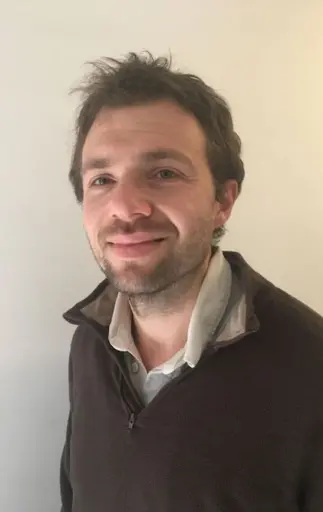Even as industry moves forward with developing next-generation nuclear reactors, there are a variety of scientific and technological questions that still need to be answered.
 Ben Lindley
Ben Lindley
“With these new reactor types, there are many different physics phenomena going on, as well as different materials and components,” says Ben Lindley, an assistant professor of nuclear engineering and engineering physics at UW-Madison. “And so we need different methodologies to analyze new reactor designs and understand how they perform.”
Lindley’s expertise is in reactor physics, and his research focuses on designing and analyzing new nuclear reactors. To perform those analyses, he develops and applies cutting-edge computational methods.
His research also involves studying ways to integrate nuclear reactors with variable renewable energy sources to harness the advantages of both while mitigating their drawbacks.
“I’m interested in how we design nuclear reactors as a complete system, and how we can come up with better components to make reactors more economical, improve their performance and make them even safer,” says Lindley, who joined the engineering physics faculty in fall 2020.
Lindley earned a bachelor’s degree and master of engineering degree in mechanical engineering and his PhD in nuclear engineering, all from the University of Cambridge in England.
After his PhD, Lindley worked as a senior nuclear engineer and reactor physicist at Jacobs (formerly Wood, Amec), a research and development consultancy in the United Kingdom, from 2014 to 2020. At Jacobs, he was part of a team that developed software so that his industry clients could analyze their nuclear reactors. His role also allowed him to conduct research and take part in major national and international research and development programs.
“I feel fortunate to have worked in an environment where I could learn about how the industry functions and understand how some technology is applied in practice while also maintaining my research career,” he says.
When he saw the open faculty position in the UW-Madison Department of Nuclear Engineering and Engineering Physics, he says the opportunity was too exciting to pass up.
“The United States is widely seen as the world leader in nuclear engineering research, and UW-Madison has a reputation as one of the best programs in the country, so it’s a real privilege to be able to teach and do my research here,” he says. “It’s a great opportunity to apply some of the knowledge and skills I’ve learned in industry back into an academic environment, where I’m also excited to work with students.”
At UW-Madison, Lindley is already leading a research project to design and model an integrated energy system that can co-produce electricity and clean water through desalination. A grant from the U.S. Department of Energy Nuclear Energy University Program is funding the work.
The multidisciplinary team is studying how to combine concentrating solar power and an advanced nuclear reactor (in this case, a lead-cooled fast reactor) to maximize the benefits of both. Nuclear energy is most economical when reactors constantly generate power at a fixed level. On the other hand, concentrating solar power production varies with the sun, but this technology also provides thermal storage and thus flexibility.
By integrating these systems, Lindley says, utility operators could produce more electricity when it is in high demand or most expensive. Then, when electricity demand is low, the plant could switch to making best use of the thermal storage, and also produce more clean water by using heat for desalination.
Lindley says he’s excited to collaborate with College of Engineering colleagues on the project, including mechanical engineers Michael Wagner and Mark Anderson, and Industrial and Systems Engineering Professor Laura Albert, as well as with researchers from the National Renewable Energy Laboratory and Westinghouse.